Early Egyptian Monasticism Collection (5 vols.)
Digital Logos Edition
Overview
Egypt is considered by many the birthplace of monasticism. In its deserts, early Christians found the lives of solitude and contemplation they longed for, and for some, respite from Roman persecution. They lived in seclusion, making homes out of caves and holes in the ground, and dedicated themselves to meditating on the person and presence of God. Now, with the Early Egyptian Monasticism collection, you can gain insight into their reclusive lives through a collation of patristic writings. These five volumes offer a trove of information straight from the pens of the Desert Fathers, ready to enhance your study of the early Egyptian church.
With Logos Bible Software, Scripture passages appear on mouse-over, and all cross-references link to the other resources in your digital library, making this collection powerful and easy to access—a rich supplement to any study on Egyptian monasticism. Perform comprehensive searches by topic or Scripture reference—finding, for instance, every mention of “Egyptian” or “recluse.”
- Historical information on the Desert Fathers
- Patristic writings from Saint Macarius, Palladius, and Pachomius
- Critical approach to The Lausiac History
- Title: Egyptian Monasticism Collection (5 vols.)
- Volumes: 5
- Pages: 1,457
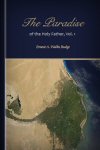
The Paradise of the Holy Fathers is a compilation of the histories of the Desert Fathers—the Anchorites, recluses, monks, Coenobites, and ascetics of the early Church— as translated by E. A. Wallis Budge from the original Syriac manuscripts. It includes an introduction to Palladius and to Christian monasticism in Egypt, an overview of the life of St. Anthony, and “The History of the Monks” by Hieronymus.
Ernest A. Wallis Budge (1857–1934) was an English Egyptologist, Orientalist, and philologist who worked for the British Museum.
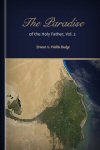
The Paradise of the Holy Fathers, a compilation of the histories of the Desert Fathers—the Anchorites, recluses, monks, Cenobitics, and ascetics of the early Church— as translated by E. A. Wallis Budge from the original Syriac manuscripts. Volume two includes the sayings of the Fathers.
Ernest A. Wallis Budge (1857–1934) was an English Egyptologist, Orientalist, and philologist who worked for the British Museum.
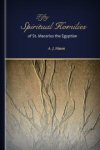
Macarius of Egypt was a fourth-century Egyptian Christian monk and hermit. Considered a saint in the Roman Catholic, Eastern Catholic, Eastern and Oriental Orthodox churches, he founded a monastery that bears his name and is now in possession of the Coptic Orthodox Church. This collection of writings, originally ascribed to this saint, has in recent years had its authorship questioned. Nevertheless it is a favorite work on Orthodox spirituality and monastic struggles, and it provides great insight into the life of early Christian monks and ascetics.
A. J. Mason (1851–1928) was an English clergyman, theologian, and scholar.
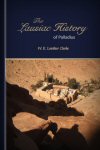
A revised translation and critical approach of Abbot Cuthbert Butler’s The Lausiac History of Palladius.
William Kemp Lowther Clarke (1879–1968) was the canon residentiary of Chichester.
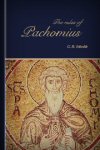
Pachomius was a third-century Christian monk, often cited as the “father of monastic institutions.” He is credited with the foundation of Christian cenobitic monasticism, a tradition that stresses community life governed by religious rules and precepts. The rules he set forth for this lifestyle are collected and translated in this excerpt from The Presbyterian Review by George H. Schodde.
George Henry Schodde (1854–1917) was an American scholar of the Coptic language and Old Testament Pseudepigrapha.
Reviews
8 ratings
Kelly Fleming
12/23/2023

Kevin Bratcher
6/12/2018
Michael T. Fox
1/20/2017
James Chin
4/3/2014

Matthew Langlois
3/28/2014

Larry Proffitt (I
11/13/2013

Michael Mullen
9/17/2013

Jerry Peterson
8/15/2013